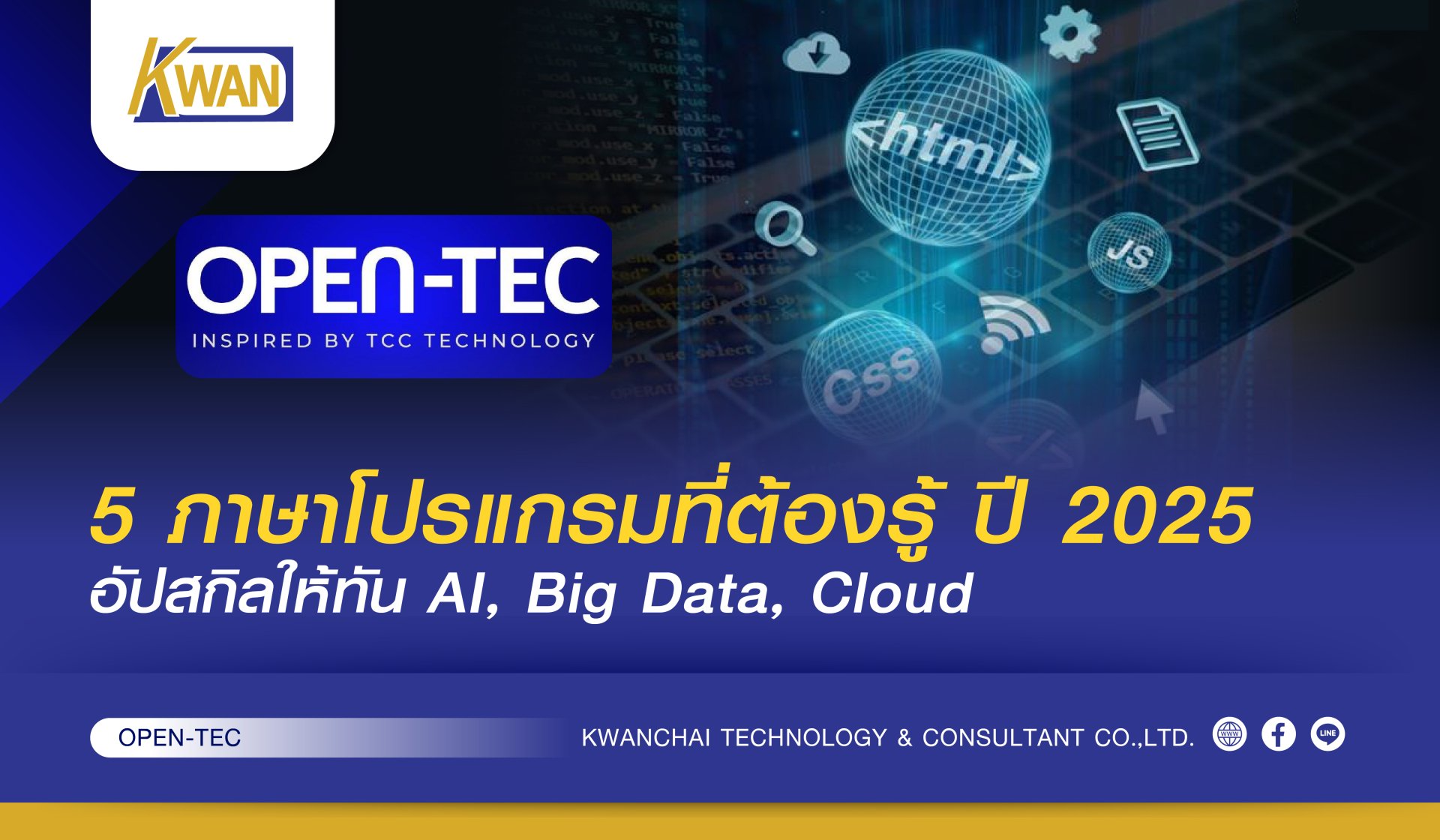5 programming languages you need to know to keep up with technology

In todays era of rapid technological change, whether it be Artificial Intelligence (AI), Big Data, or Cloud Computing, these innovations have increasingly become part of our daily lives. At the core of these technologies lies programming, with programming languages serving as essential tools for development. Even though the average user may not be a software developer, having a basic understanding of the most popular programming languages can be highly beneficial. It enables us to better learn new technologies, enhance our career potential, and gain deeper insights into the digital systems that surround us.
Today, OPEN-TEC, a Tech Knowledge Sharing Platform under TCC TECHNOLOGY GROUP, introduces five programming languages worth knowing in 2025languages that power the innovations shaping the modern world.
Python The popular language behind cutting-edge technology
Python is the most widely used programming language worldwide. Its biggest strengths lie in its simple and readable structure, making it suitable for both beginners and professional developers. Python code often resembles natural English, helping newcomers learn faster and more effectively.
Python plays a vital role in multiple fields, particularly in Artificial Intelligence (AI) and Big Data analyticscovering applications such as image, voice, and text recognition, user behavior analysis, as well as automation and intelligent chatbots.
Its flexibility and powerful capabilities make Python highly sought after in the job market, making it a perfect starting point for those looking to enter the world of technologyboth now and in the future.
Go The language for large-scale systems
Go, also known as Golang, was developed by Google. Its main strengths are high processing speed and excellent support for handling concurrent tasks, making it a top choice for building large-scale backend systems, cloud services, and online platforms with massive concurrent users.
It is widely adopted in DevOps, networking, and Internet of Things (IoT) applications. With its simplicity, even new learners can pick it up quickly.
In 2025, Go continues to grow, especially among organizations requiring fast, stable, and scalable systems. For anyone aspiring to work on large-scale infrastructure or with global tech companies, Go is a language not to be overlooked.
Java The enterprise language for stability and security
Java is known for its reliability and has long been the backbone of large-scale enterprise systems worldwideused in banking, insurance, telecommunications, and even government services. It is particularly valued in mission-critical applications that require 24/7 availability.
One of Javas key advantages is cross-platform compatibilitywrite once, run anywhere. Its automatic memory management also helps reduce coding errors.
Even in the era of Cloud Computing and IoT, Java remains highly adaptable, supported by vast frameworks for modern application development. Thanks to its trustworthiness and long-term stability, Java continues to be one of the most important and reliable programming languages for global businesses in 2025.
C# Bridging business and technology
C#, developed by Microsoft, is widely used for business applications, especially within Microsofts ecosystemsuch as Microsoft Office, Azure, and Dynamics. It is also the primary language behind Unity, one of the worlds most popular game development platforms.
C# offers flexibility and clear syntax, making it suitable for building applications across multiple platforms, including Windows, macOS, Android, iOS, and cloud environments. Combined with powerful development tools like Visual Studio, C# significantly boosts developer productivity.
This makes C# an excellent choice for those working in Microsoft-based organizations or businesses that need scalable, stable systems with long-term growth potential.
JavaScript The heartbeat of modern websites and apps
JavaScript is the most widely used programming language for web development, enabling interactivity, animations, and advanced functionalities on websites. Beyond the browser, JavaScript is also used for mobile apps and IoT solutions.
What started as a web enhancement language has now evolved into a full-stack solution, thanks to frameworks like React, Vue, Angular, and Next.js. Developers can now build both front-end and back-end systems with JavaScript alone.
With its versatility, relatively easy learning curve, and wide applications, JavaScript is the perfect entry point for those who want to understand technology and create innovative digital experiences.
Open-tec / Dataxet Infoquest (PR)



